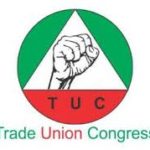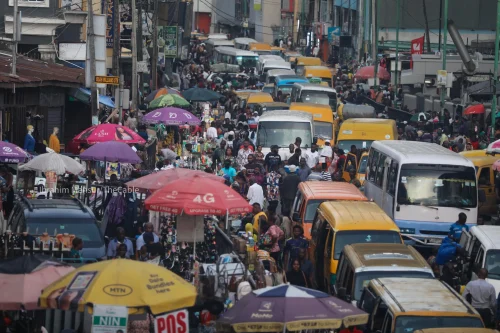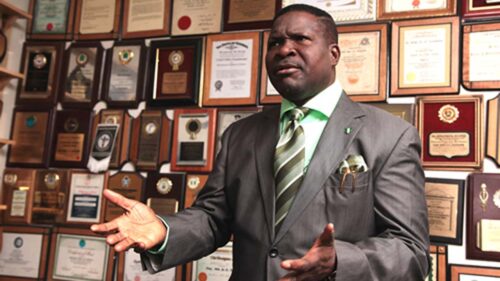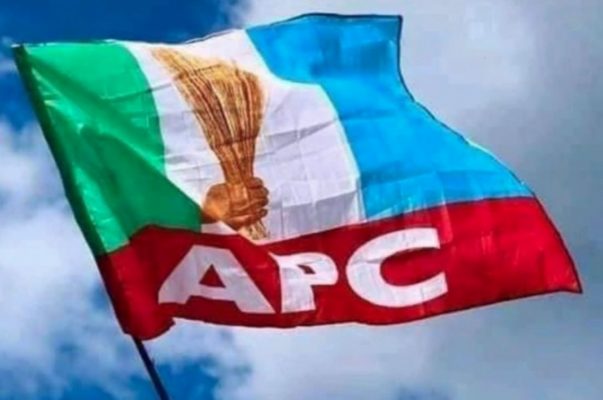Nigeria at 56: Recognising the Value of a Country’s Labour force
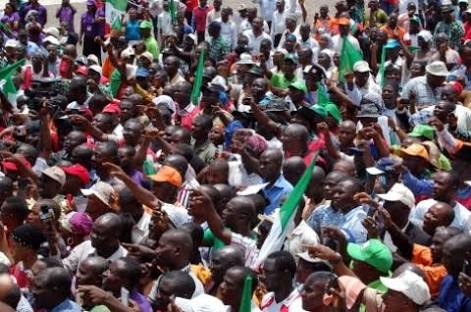
One thing that everyone agrees on is that Nigeria is a great country blessed with immense resources and amazingly talented hard-working people.
Indeed without the people there will be no country, so the people are its most valued asset and capital for development and the most important of the populace is no doubt its workforce, those who engage in productive activities.
The masses have most times looked up to this category of people for intervention whenever they feel they are being oppressed or cheated by the owners of capital, expectedly the organised labour have risen up to the occasion to ‘fight’ for the masses in calling for reversal of oppressive laws, policies or deprivations.
The organised labour has been known to speak with one voice in the past and this unity has been their main advantage when calling for nationwide strikes to drive home their legitimate demands whenever negotiations fail.
Today however that confidence in organised labour by the masses seem to be on a fast decline given the inability of the labour unions to speak with one voice and thereby losing their capacities to call for a nationwide strike or bring government to the negotiating table to get their demands met.
While the economy continues to bite hard and inflation is now in two digits, one major impact it has had on the workforce is that their take home can no longer guarantee half what it was worth in the market a year ago.
Secondly the dwindling price of oil which is Nigeria’s mainstay after straying from agriculture has negatively impacted on government revenue such that workers are owed months of arrears and pensioners are dying waiting for their pension.
Indeed if workers are regarded as the heroes that they are, then their labours are in vain because they no longer seem to enjoy the biblical saying that a labourer is worthy of his wages, neither does the verse in the national anthem that says… “the labour of our heroes past shall never be in vain” relate to them.
According to Comrade Bobboi Bala Kaigama President of Trade Union Congress of Nigeria (TUC), the 56TH Independence Day Anniversary is a ‘time for sober reflection’.
Applauding the sacrifices of the founding fathers of Nigeria the legacy they have left behind, he stresses that the country though politically free was still constrained economically to the apron strings of erstwhile colonial masters.
“Ours is a tale of a country that has been hijacked by the Brettonwood institutions and an insignificant few in terms of number, who now manipulate the system to their own personal aggrandizement. The politicians collude with the big players in the economy to rape the treasury, leaving the people prostrate, hopeless and frustrated.
“We are clearly embittered seeing Nigerians lose their jobs in droves and the people in charge are doing nothing in terms of initiating stimulus economic policies other than the clamour for sale of national assets. The cabal have long infiltrated the polity. In fact, virtually every bill passed in the National Assembly today is to the advantage of these few Nigerians.
He laments that Nigeria is the sixth oil-producing country in the world yet the poorest.
“Are we heading in the right direction? No. The backbone of every democracy is a vibrant parliament or National Assembly (as it is in our own case), unbiased judiciary, media and active organised labour/civil society. Unfortunately, out of all these only labour and its civil society ally appear to be interested in the development and growth of the country. Profligacy has become the order of the day, especially the Eight Assembly.
“At first it was the issue of salary and allowances; exotic and bulletproof cars for lawmakers and their wives, budget padding, etc. They play politics without principles, amass wealth without work. “We are patriots and we feel your pains”, they say, but their actions speak otherwise.
I wish to assess the following areas:
Kaigama noted that Nigeria is blessed with human and natural resources but cursed with bad leadership.
“Our leaders care less and never give a hoot about nation-building. India, Nigeria, China, Malaysia were in the league of third world countries a few decades ago but now they have created a niche for themselves in the global economy.
He lambasted the political class especially the lawmakers for dwelling on inconsequential issues at a time the country was in economic recession and the masses were faced with biting hardship.
“Why the leadership of the Senate and some of his colleagues called for the sale of performing national assets still beats our imagination. It is a shame!
“We are distraught by the fact that federal government and most state governments refuse to remit our deducted pension and the promised new minimum wage and palliatives meant to cushion the pain caused by the last deregulation have not been implemented,” he said.
He noted that there was a ‘disconnect’ between speeches of hope presented by political offices holders at their inaugurations and the reality soon after they assume office.
“There is no gainsaying the fact that all sectors of our economy have collapsed, and our most cherished naira bows every hour to foreign currencies. As at yesterday the naira exchanged for between N480 and N492 per US dollar. The Central Bank of Nigeria (CBN) appears hopeless, not knowing what to do. Many companies have closed shops while others are fleeing the country, a situation that has lead to millions of job losses. Our economy has been hijacked by the International Monetary Fund (IMF) and a few wealthy Nigerians and the society is the worse for it,” he lamented.
The challenge before the country he said was the few greedy Nigerians who see the country as their personal property.
According to Kaigama “They use our commonwealth to buy our viable national assets only to turn them to warehouses. They are paid upfront to fix the refineries that never worked; they increase the price of fuel to N145 per litre; canvass for the sale of LNLG, Airports, Sea Ports, etc. They have a common goal, which is to loot.
“The report from Nigerian Bureau of Statistics (NBS), in its Second Quarter released at the beginning of September 2016, noted that the fortune of the economy has dwindled by 2.06 per cent which has never happened in the last three decades. We have been assured that the recession will soon be over; we agree but it is important government look beyond the ruling party to source for capable hands that can help save our economy. All hands must be on deck to ensure that we become economically free by exporting more than we import and by patronising made in Nigeria goods.”
All is not bad and all hope not lost as some good performances by men of the armed forces has pushed back insurgency and reduced insecurity significantly especially in the north-east as acknowledged by the TUC President.
“The Congress appreciates the military for their effort so far at maintaining peace in the country. We also share their pains and that of families who lost their loved ones in the North-east and Niger Delta while trying to stall the activities of the militants. Be that as it may, what the military is doing at the moment in those regions can best be described as “addressing the symptoms”. The main causes of the unrest itself must be looked into – unemployment, poverty, etc.
“The saying, an idle hand is the devil’s workshop is the case here. Where there is good leadership there would be development; where there is development there would be jobs; and when there are jobs there would be no youths in the street waiting to be used for political thuggery. “
On Sale of National Assets
Recent debates on the economy in the wake of recession and how to salvage the country have dwelt on the sale of national assets to fund the 2016 budget which unfortunately cannot be funded with the current revenue due to a shortfall occasioned by declining oil price and vandalism of oil installations in the Niger delta by militant groups.
The TUC and other labour unions have separately warned against the move to sell off national assets to individuals and major corporations.
Kaigama said: “In our race to come out of the recent recession that has bedevilled the country, caution should be taken to ensure we do not auction our life-wire to people as being suggested by Nigerian governors during the National Economic Council (NEC) meeting and a few other Nigerians. The consequences of such action would be disastrous. Tell me of any asset sold in this country without hundreds of people losing their jobs! Did they even tell us what they did with the proceeds?
“Truly, we are experiencing increasing economic complexities, but that does not mean we should sell our birthright for a mussel of porridge. If only those canvassing this will pay their appropriate taxes and the economy well diversified we wouldn’t be complaining by now. Let us remember that if those who invested in the assets had sold them, the current administration would not have been able to bailout some state governments when they cried for help some months ago.

“The recommendation of the sale is hasty, unreasonable and we suspect foul play. Our challenge as a country is not paucity of resources, but rather the inability (or deliberate refusal) of successive governments to convert the “blessings” for the general good of all.”
Education
Education is necessary for equipping individuals with requisite knowledge and skills for work; it therefore goes without saying that the quality of a learning institution is equal to the value of its products.
It is therefore sad if a country like Nigeria continues to depend on expatriates for technical and artisanal jobs.
Those charged with administering the educational and vocational learning centres across the country must be future oriented to stem the trend of turning out graduates for jobs that no longer exist or artisanal trends that have gone out of style.
According to Kaigama: “The education sector is in a sorry state. In fact, our best university is not even among the best 1000 in Africa, talk less of the world. The government has never implemented the 26.5 percent of annual budget mandated by UNESCO. All their policies in the sector are never implemented.”
For a nation, Nigeria is quite young at 56 and must be driven by youthful ideas guided by experience in order to secure the future for posterity.


